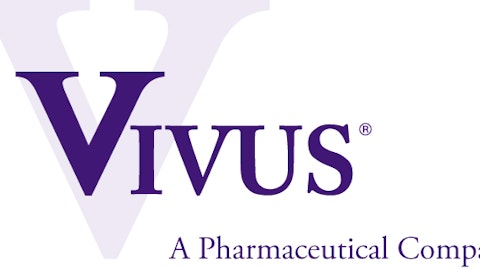After a gap of several years, there seems to be a candidate in the obesity drug market that could turn out to be a long-term winner. Each drug in the market has its merits and demerits, but there is one with relatively strong market potential, in my opinion. It finally seems like obesity has become a surmountable challenge.
The past record of obesity drugs has not been great. Going by the historical trend, it is clear that for a new drug to succeed, not only does it need to satisfy the basic criteria for efficacy required by the FDA, but it also needs to demonstrate no increase in cardiovascular risks, if not a decrease.
This is because most drugs in the past have been tried out initially based on their efficacy data, but have been abandoned due to cardiovascular or neurological side effects. Overall, it will be important that patients are able to tolerate the drug well and do not experience any serious side effects in the long run.
Which new obesity drug has better chances in the market?

Since Belviq can achieve weight loss benefits along with positive effects on several other health indicators as mentioned, it could have a chance against Qsymia and the formidable generics, phentermine and topiramate, in the market.
To help Arena Pharmaceuticals, Inc. (NASDAQ:ARNA) with marketing Belviq in the U.S., Eisai, a Japanese pharmaceutical company, has entered into an agreement with the company. The deal gives Eisai the exclusive rights to commercialize Belviq in the U.S. Eisai has already paid a fee of $50 million to Arena, and will make up to $160 million in milestone payments in the future, apart from giving a share of 31.5% of Belviq’s revenue.
This deal places Arena Pharmaceuticals, Inc. (NASDAQ:ARNA) in a safe position as it heads out to launch its product in the market. Based on how the sales turn out relative to other drugs, Eisai can plan strategies to further promote the drug, while Arena will be cushioned against great setbacks in the event of failure of the drug in the market.
A recent Decision Resources press release states that several managed care organizations (MCO) pharmacies and medical directors in the United States are not favorable towards weight-loss drugs, and block them from patients’ reach.
As if satisfying efficacy criteria was not enough, hurdles such as this one will make the market viability of the new drugs entering the market seem bleaker. It is being predicted that Novo Nordisk’s Victoza will become the market-share leader in the obesity market. This would most likely happen due to physicians’ experience with prescribing the drug to treat type-2 diabetes, as well as experience with (unapproved) prescribing of the drug for obesity.
Also, matching phentermine’s dominance in the market will be a cumbersome task. Belviq, in my opinion seems most well-positioned to do this, given the fact that patient tolerance of the drug is comparatively better than the others and there are positive effects on factors such as blood pressure and heart rate. Many people who are not open to trying drugs for weight loss are likely to get convinced to use a safe and mild drug as this one for a start.
The challenge for Belviq would then be to show long-term efficacy to ensure it can become competitive with phentermine. Belviq, it seems, has been created for the very purpose of replacing fenfluramine, which was previously prescribed in combination with phentermine, but was later rejected due to its contribution to heart valve defects.
The phentermine-Belviq combination might have some promise in it, because while Belviq is not able to achieve as much of a weight reduction as phentermine, it can perhaps, when used in combination with the latter, bring about some improvements in cardiometabolic factors. I am also curious to find out the long-term weight loss impact of Belviq, because I would like to know whether the improvement in cardiometabolic factors actually increases over time, and whether it aids in greater weight loss over the long run.
Eisai will have to spend a lot of resources in ensuring that physicians and patients are well educated on the benefits of Belviq. Currently, there is no other product in the market that can help achieve cardiometabolic benefits along with weight reduction. Patients’ biggest concern is harming their health while taking drugs to lose weight and Belviq addresses that problem bang on. Now, it is for the marketing personnel to heavily promote this product and educate patients and doctors.
The efficacy results of the other drug under consideration, Contrave, falls in the middle of that of Belviq and Qsymia. The drug showed significant reduction in weight along with improvement in cardiometabolic risk factors, except for a slight increase in heart rate. Colntrave will have to demonstrate that its usage will not lead to adverse cardiovascular events before the drug gets approved.
Details on the recent obesity drugs on the scene and FDA’s efficacy criteria for them
Belviq acts as a selective serotonin 2C receptor agonist. It is selective in the sense that it acts only on the serotonin receptors in the brain. This is important because a similar drug that was in use previously, called fenfluramine, targeted serotonin receptors in the heart valves as well, leading to side effects. The serotonin 2C receptor is expressed in the brain, including the hypothalamus, an area believed to be involved in the control of appetite and metabolism.
The drug is supposed to promote the feeling of being satiated in a person and hence, help him/her eat less. Arena Pharmaceuticals, Inc. (NASDAQ:ARNA)has patents that cover lorcaserin in the U.S., Europe, and other jurisdictions that in most cases can continue into 2023.
(For more on these drugs, see the second part of this article)
The second major drug, VIVUS, Inc. (NASDAQ:VVUS)’ Qnexa or Qsymia, is a drug targeted towards weight loss, type-2 diabetes and obstructive sleep apnea. Qnexa is a combination of phentermine and topiramate, which is designed to decrease appetite and increase satiety, the two main mechanisms that impact eating behavior.
Orexigen Therapeutics, Inc. (NASDAQ:OREX)’ Contrave is combination of bupropion and naltrexone. The effect of this drug is to reduce appetite and increase energy expenditure.
Following are the criteria that the medications are expected to achieve as per the Draft FDA guideline (February 2007): “a long-term reduction in fat mass with a goal of reduced morbidity and mortality through quantifiable improvements in biomarkers such as blood pressure, lipids, and HbA1c.”
Since it is explicitly mentioned that improvements in blood pressure, lipids, and other factors related to weight loss are expected with an efficacious product, and changes in such factors will be considered in evaluating the drugs, this will turn out to be very important in determining the market success of the medications.
Obesity prescription data and statistics
While FDA guidelines are crucial to satisfy, it is also imperative for the drug efficacy to be convincing enough to the doctors expected to prescribe them. Currently, phentermine, along with metformin or topiramate, is the most prescribed medication for obesity treatment.
Physicians have been prescribing phentermine in combination with topiramate for years and patients have received the benefits of weight loss from this combination therapy.
The article Have Drugmakers Found the Panacea for Obesity? (Part I) originally appeared on Fool.com.
Copyright © 1995 – 2013 The Motley Fool, LLC. All rights reserved. The Motley Fool has a disclosure policy.


